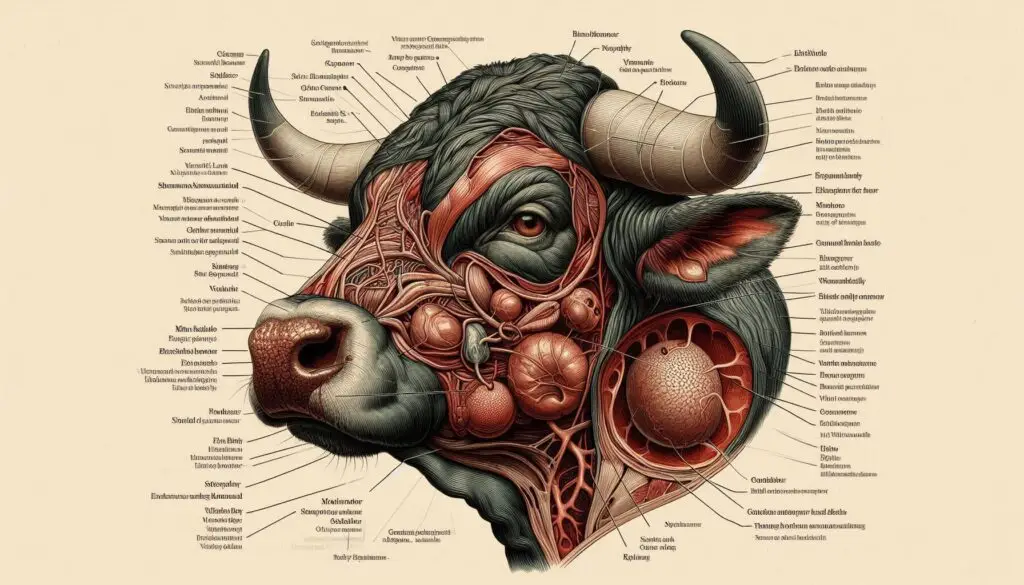Tetanus in Farm Animals

Introduction to Tetanus in Farm Animals
Tetanus, commonly known as lockjaw, is a serious condition that affects various farm animals. This disease is caused by the bacterium Clostridium tetani, which thrives in soil and animal feces. Understanding how this disease affects livestock is crucial for farmers and veterinarians alike. In this article, we will explore the causes, symptoms, treatment options, and prevention strategies for tetanus in farm animals.
What Causes Tetanus?
The Role of Clostridium tetani
Tetanus occurs when Clostridium tetani spores enter the body through wounds. These spores are commonly found in soil and manure. When they enter a low-oxygen environment—such as a deep wound—they can multiply and produce a toxin called tetanospasmin. This potent neurotoxin disrupts normal nerve function. For more details on the bacterium’s life cycle, visit CDC – Tetanus.
Common Sources of Infection
Farm animals can become infected through various means:
- Wounds from Surgical Procedures: Procedures like castration or dehorning can create openings for infection.
- Injuries from Sharp Objects: Cuts from barbed wire or sharp tools can also lead to infection.
- Infections from Other Animals: Animals that are already infected can spread the spores through their feces.
Recognizing Clinical Signs of Tetanus
Initial Symptoms
The early signs of tetanus can be subtle but should not be overlooked. Farmers should watch for:
- Stiffness: Animals may show reluctance to move.
- Muscle Spasms: Twitching may begin around the face and neck.
Progressive Symptoms
As the disease advances, symptoms become more severe:
- Lockjaw: The masseter muscles become rigid, making it difficult for the animal to eat or drink.
- Behavioral Changes: Affected animals may appear anxious or easily startled.
- Physical Manifestations: The third eyelid may protrude, and bloat may occur due to rumen dysfunction.
For detailed descriptions of symptoms, refer to Merck Veterinary Manual.
Treatment Options for Tetanus
Early Intervention is Key
If you suspect an animal has tetanus, immediate action is essential. Early treatment can significantly improve outcomes.
Antitoxins
Administering tetanus antitoxin can neutralize the toxin if given early enough. However, this treatment has limitations once clinical signs appear.
Supportive Care
Supportive care includes:
- Sedatives: These can help calm the animal.
- Muscle Relaxants: Medications may alleviate muscle spasms.
Veterinary Assistance
Always consult a veterinarian for proper diagnosis and treatment plans. For more information on veterinary treatments for tetanus, check out Veterinary Partner.
Prevention Strategies for Tetanus
Maintaining Surgical Hygiene
Preventing tetanus starts with good hygiene practices during surgical procedures. Here are some tips:
- Use sterile instruments.
- Clean wounds thoroughly before any procedure.
Vaccination Protocols
Vaccination is one of the most effective ways to prevent tetanus. Vaccines stimulate immunity against C. tetani. Consult your veterinarian about vaccination schedules tailored to your livestock. For further reading on vaccination protocols, visit American Association of Bovine Practitioners.
Regular Monitoring
Regularly inspect your animals for wounds or injuries. Promptly treat any cuts or abrasions to reduce infection risk.
Conclusion
Tetanus is a serious threat to farm animals that can lead to severe health complications or death if not addressed promptly. Understanding the causes, recognizing symptoms early, and implementing effective prevention strategies are essential steps for any farmer or livestock owner. By maintaining good hygiene practices and ensuring proper vaccination protocols are followed, you can protect your livestock from this dangerous disease.
For more pearls of Vets Wisdom:





Thank you for your sharing. I am worried that I lack creative ideas. It is your article that makes me full of hope. Thank you. But, I have a question, can you help me?